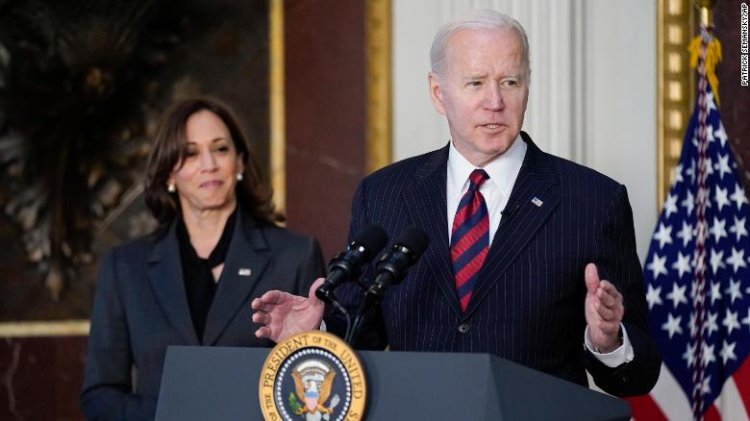Biden is expected to approve a measure making lynching a federal hate crime.
The President and Vice President Kamala Harris are expected to speak on the new law from the White House Rose Garden.

President Joe Biden is expected to sign a bill making lynching a federal hate crime into law on Tuesday after Congress passed the bill earlier this month with overwhelming bipartisan backing.
The Emmett Till Antilynching Act of 2022 is named after a 14-year-old Mississippi Black boy who was brutally murdered by a mob of White men in 1955 for allegedly whistling at a White woman. His assassination aroused a national outcry and fueled the civil rights movement.
Rep. Bobby Rush of Illinois introduced the bill in the House of Representatives, and just three Republicans voted against it: Andrew Clyde of Georgia, Thomas Massie of Kentucky, and Chip Roy of Texas.
The bill was then unanimously approved by the Senate. At the time, Senate Majority Leader Chuck Schumer noted that Congress had tried and failed to abolish lynching more than 200 times and that the new legislation was "far overdue."
The President and Vice President Kamala Harris are expected to speak on the new law from the White House Rose Garden.
Lynching was a kind of racial terror used against African Americans, especially in the segregated South. According to Tuskegee University's lynching database, 4,743 persons were lynched between 1882 and 1968, with 3,446 of them being African Americans.
For more than a century, proponents have attempted to establish federal anti-lynching legislation.
When Harris was a senator, she co-sponsored legislation with New Jersey Democratic Senator Cory Booker and South Carolina Republican Senator Tim Scott to make lynching a federal hate crime. The Justice for Lynching Victims Act was adopted by the Senate in late 2018, but it failed to pass the House of Representatives.
In 2019, Rush submitted a measure that was similar to his current one. The House passed the bill the following year, but Sen. Rand Paul, a Kentucky Republican, held it up in the Senate due to worries that it was too broad. Paul stated earlier this month that he supports the most recent version of the plan.

 Boakyewaa Lawrencia
Boakyewaa Lawrencia 



































